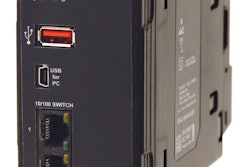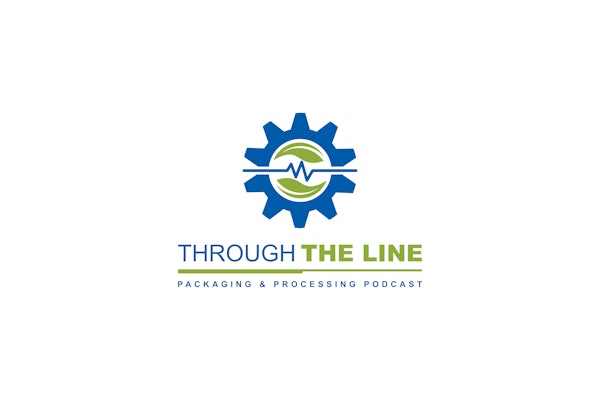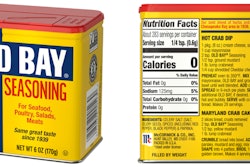The PMMI research team interviewed 80 stakeholders to determine current robot use, barriers to growth and future possibilities. In this special feature, we let the anonymous participants of the study weigh in about robotics, in their own words.
Current Use:
“We use our own customized robotics software but still purchase robotic components.” --Owner, OEM
“We simply buy a robotic system and integrate it into our machines.” --Engineering Manager, OEM
We purchase from the robotics manufacturer and customize to end user needs inhouse.” --VP Sales and Marketing, OEM
“More components have plug in capabilities with built in sensors, programming, and communication systems with feedback intelligence for reconfiguration if needed, to detect a variety of products.” --Sr. Robotics Application Engineer, OEM
“A team dialogue takes place with internal engineers and all suppliers at every stage of the process: design, build, start-up, and support.” --Engineering Manager, CPG Leader
“We are nearly doubling our robotics for loading containers into the FFS machine, which will be about 30% robotics in the future.” --Packaging Manager, Large Snack Food Company
“We will be implementing robotics to place bottles into recycled cartons using SCARA robots on 2 out of our 18 lines.” --Packaging Manager, Personal Care Co-Packer
“We will be upgrading our last manual case packing operation to robotic case packers this year.” --Sr. Packaging Development Manager, Pharma; Rx, Generics, OTC, and Supplements
“We are 100% automated, from palletizing to warehouse and distribution functions, using integrated pick and place robotics.” --Engineering Director, Beverage Leader
“Our goal is nearly 100% robotic handling for palletizing and depalletizing.” --Production Manager, Snack Food
“We have one cartoner with six robots for a picking application.” --Technical Supervisor, Cosmetics Leader
“There are about 12 spider pick and place robots on the same line.” --Sr. Project Engineer, Canned Food
“We typically use two, three, or four Delta robots for picking and packing.” --Robotics and Automation Manager, Dairy
“We just installed the first multirobot machine this year for case packing; it’s doing well. One robot picks up the product and the other moves the slip sheets.” --Director Corporate Engineering, Small Beverage Co.
“We are spending more, the trend is for more robotics.” --Engineering Director, Beverage Leader
Needs of manufacturers:
“It’s difficult to find qualified people or just people in general; younger engineers and skilled technicians are looking for employment beyond the manufacturing sector.” --VP of Engineering, Software Supplier
“Companies need to get creative and use robotics to solve inefficiencies and bottlenecking issues along the line.” --Vice President, Robotic Expert
“We want OEMs to manage the implementation process and training until full production of the robot is achieved.” --Production Manager, Frozen Food
“Programming is always complicated with various languages, not just anyone can do it. With five axes or more, it’s even more complicated.” --Sr. Packaging Engineer, Food/Beverage Leader
“Customers want software with one language.” --Robotic Systems Consultant
“Robotics safety needs to become the top priority; the potential mistakes of even one robotics company could set our industry back for years.” --CEO, Robotics Manufacturer
“Sanitation is our biggest issue with the use of robots; we need USDA certified robots and end effectors.” --Engineering Director, Food Company
“For some engineers there is a fear or intimidation of knowing where to start; we offer simple robotics initially and add vision as a second stage.” --Sales Director, Robotic Manufacturer
“We have had significant growth over the years as OEMs address the labor gap with robotics for most of their customers. --Owner, OEM
“We have limited resources and need to identify and prioritize which products or lines are best suited to implement robotics.“ --Manager of Packaging, Snacks/Bakery
Cobots (Collaborative Robots):
“Cobots are merely a robot with software functionality to switch between full auto and safe operating modes based on sensing the presence of the operator.” --Technology Expert, Director, Business Development
“We are using cobots to load and unload for case packing.” --Manager of Technology,, Large Personal Care
“We are starting to do variety packs and can’t find the labor needed; we will use cobots for tray unloading and assembly.” --Project Manager, Personal Care Co-Packer
There are discussions of introducing a cobot for slow speed, repetitive motion applications.” --General Manager, OEM Primary Packaging
“Cobots can be very useful and present a lower barrier of adoption than traditional robotics. It’s a useful tool for specific applications.” --Technology Engineer, Vision Supplier
“We are not jumping on the cobot band wagon until there is consistent implementation in the industry.” --Director, OEM
“Cobot quotes are increasing, but we aren’t seeing the sales yet.” --Engineer, Systems Integrator
“We have quoted but not implemented any cobots.” --Engineering Manager, OEM
“We are using collaborative robots on only a single application; they are too slow and cannot exceed 100 pieces per minute.” --Engineering Director, Co-Manufacturer Solid Dose Pharma
“There is room on the line for more cobots to unscramble, group, sort, and assemble products.” --Engineering Manager, Leader in Household Products
“Some lines are hand palletized and will go to cobots or robotic stations depending on speeds.” --Principle Packaging Engineer, Leader in Food
Look to the future:
“There is huge growth for robotics beyond automotive in non-traditional industries such as food, beverage, consumer goods, life sciences, electronics, and packaging.” --Vice President, Industry Expert
“The trend is to make all automation, including robotics, easier to use in general, like a smartphone.” --Director of Engineering, Robot Manufacturer
“Robots are easier to use, with improved sensory functions for autonomous motion and unified control; the costs have declined and in the next ten years the industry is likely to double.” --Senior General Manager, Robot Manufacturer
“AI (Artificial Intelligence) will have the greatest impact in the future as robots learn while doing the work.” --Engineering Director, Food Company
“There are new robot technologies in the works that researchers are not yet willing to share, but indicate a drive toward smaller components and smarter learning skills.” --Sr. Robotics Applications Engineer, OEM
“Robots of the future will be smaller, faster, adaptive, and mobile, creating a highly flexible and versatile manufacturing floor.” --Director of Business Development, Technology Supplier
“Robotic programming is at the cusp of a revolutionary breakthrough.” --Application Engineering Manager, Robot Manufacturer
“Robots of the future will assess their surroundings on the line, evaluate the task they are doing, communicate with the line, and autogenerate action or correction.” --Development Engineer, Systems Supplier
“Robots of the future will be smaller, faster, adaptive, less expensive, and mobile, creating a highly flexible and versatile machine design.” --Director of Business Development, Technology Supplier
Perceptions:
A phobia still exists about the skill level to introduce robots or cobots into an operation; it’s not as difficult as some engineers perceive.” --VP Sales, OEM
“Many users still choose a more traditional, successful solution, one they are more familiar with.” --Machine Vision Technician, Technology Supplier
“The obstacles we face are based on three components: cost, capital investment, and ROI.” --Engineering Director, Beverage Leader
“There is an overall lack of internal technical expertise needed to support robotics.” --Sr. Project Engineer, Leader in Food
Robotics need to show a reduction in labor costs and measurable improvements in operating efficiencies and throughput.” --Sr. Packaging Manager, Pharma
“Everyone is automating due to lack of workers. Robots are being used in palletizing to efficiently build pack patterns, repeatedly.” --Director, OEM
“We are working on a new flex line for a personal care product: a fully automated line with approximately 20 robots to do the job. If our partners get this to work, it will be the future.” --Technical Engineer, Personal Care Leader
PMMI members can access the full 62-page report here.
All readers can download the free detailed Executive Summary below.
Visit PACK EXPO Las Vegas September 23-25 to see dozens of robots in action, both stand-alone and integrated into packaging machinery.






















